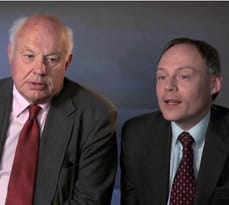Podcasts/blogs
#AllOutEconomics Brexit & the UK economy’s rocky path as the Chancellor declares he has ended Austerity
Vicky Pryce (September 2019)
Professor David Howarth & why PM Boris Johnson should have already gone
Professor David Howarth (September 2019)
Brexit and its consequences for the UK economy and political systems
Professor Simon Deakin and Professor David Howarth (January 2019)
The UK’s trade options post-Brexit
Dr Lorand Bartels (September 2018)
The Chequers deal explained
Professor Catherine Barnard (September 2018)
The new legal and economic challenges facing the government as the UK negotiates a Brexit deal
Boni Sones (April 2017)
Post-Brexit options for the UK: the WTO option
Dr Lorand Bartels (April 2017)
Post-Brexit options for the UK: combining legal and economic analysis
Boni Sones (April 2017)
Post-Brexit options for the UK: free movement of people and EU law
Dr Martin Steinfeld (April 2017)
Post-Brexit options for the UK: the UK constitution, the white paper and the proposed Repeal Act
Professor David Howarth (April 2017)
Post-Brexit options for the UK: social policy, what changes?
Professor Simon Deakin (April 2017)
Post-Brexit options for the UK: financial cost to the UK of leaving the EU
Dr Michael Waibel (March 2017)
Post-Brexit options for the UK: economic impact of post-Brexit
Professor Graham Gudgin (March 2017)
Post-Brexit options for the UK: the rights of EU nationals in the UK post-Brexit
Dr Kirsty Hughes & Boni Sones (March 2017)
The second reading of the Brexit bill
Boni Sones (February 2017)
Hinkley Point C revisited
Dr Ding Chen, Dr Paul Dorfman, Professor Simon Deakin, Professor David Howarth, Tony Roulston, David Lowry, Dr Andrew Blowers, Dr David Reiner and Chris Huhne (January 2017)
Simon Deakin and Graham Gudgin discuss their predictions for the UK economy in 2017
Professor Simon Deakin and Dr Graham Gudgin (January 2017)
Labour standards and labour law reforms in the Rising Powers: trends and prospects in public and private regulations
Professor Simon Deakin (November 2016)
What next for Brexit?
Professor Simon Deakin (June 2016)
Brexit, labour rights and migration: what’s really at stake
Professor Simon Deakin (June 2016)
Brexit would make the UK less democratic, not more
Professor Simon Deakin (April 2016)
George Osborne’s 2016 Budget
Boni Sones OBE (March 2016)
The Conservatives’ 25-year fight for equality – why reform is on the agenda in 2016
Boni Sones OBE (February 2016)
Keeping the world at arm’s length: what the Amish can teach us about technology
Christopher Markou (December 2015)
High household debt and extreme house prices threaten the UK economy and the Chancellor won’t balance his budget by 2019/20, says a new economic forecast from the Centre for Business Research – Winter 2015
(December 2015)
Women in business and women in politics have much to learn from each other – including how to storm the smoking room and how to break down clubby cultures!
Boni Sones (November 2015)
Will the recent High Court Uber ruling eventually help Google launch driverless cars and what can history tell us about technological change and the law?
Professor Simon Deakin (October 2015)
As the Chinese economy slows we still have much to learn from this emerging market’s phenomenal economic transition and its increasing reliance on the rule of law
Professor Simon Deakin & Dr Boya Wang (October 2015)
Nikkei’s purchase of FT Group may be good for all those concerned
Dr John Buchanan (August 2015)
Social policy will be critical to a sustainable economic and monetary union (‘EMU’)
Professor Simon Deakin (June 2013)
“March of the makers” – rebalancing our economy needs more push from government
Michael Kitson (June 2013)
The proof of the pudding – why the £200 million a year Small Business Research Initiative needs transparent implementation
David Connell (April 2013)
“March of the makers” – why UK business need funds to grow and global talent to capture new markets
Michael Kitson (June 2013)
European Court’s Pringle judgment: good law, bad economics
Professor Simon Deakin (March 2013)
Rejoining the north European mainstream
Professor Simon Deakin (February 2013)
Shares for workers’ rights: why entrepreneurial firms need employment law too
Professor Simon Deakin (February 2013)
Hedge fund activism in Japan: the limits of shareholder primacy
Professor Simon Deakin (June 2012)
Kay needs to replace “shareholder value” with “corporate value”
Professor Simon Deakin (March 2012)
Executive pay – your questions answered
Professor Simon Deakin (February 2012)
New governance research – your questions answered
Professor Simon Deakin (December 2011)
Videos

A Cambridge economist and government advisor is calling for a new approach to innovation policy designed to stimulate significant fiscal growth. Investing in technology innovation, although important for the long term, will not address the current need. Michael Kitson, University Senior Lecturer in International Macroeconomics at Cambridge Judge Business School, insists that a new and broader innovation strategy is needed to operate within a system and not just in individual markets. [vimeo id="75592986"] Investing in innovation technology generates growth but over a long time, evidenced by all major technologies. Economic growth, he adds, is not generated by the development of ideas. He says the biggest impact on the economy is the diffusion of ideas. Spreading into the rest of the economy, often extending to what he calls the 'boring parts'. Investing in technology innovation is important for economic growth, but it will not get us out of the economic crisis we're in at the moment. It will not generate significant economic growth over two to three years' time. It will generate growth in 10-15 years' time." In an interview for the School's website, Kitson identified the poor exchange of ideas as an innovation system weakness in the UK. It's about…

The Cadbury Archive at Cambridge Judge Business School has been completed with the addition of copies of all the speeches on corporate governance made by Sir Adrian Cadbury, Chairman of the UK Committee on the Financial Aspects of Corporate Governance. The Archive, established in 2010 and part of the Cambridge Corporate Governance Network (CCGN), is a major source for researchers into corporate governance. [vimeo id="71511170"] Dr Ian Jones of the University of Oxford and Dr Michael Pollitt of Cambridge Judge Business School lead the Ethics, Regulation and Globalisation project at Cambridge's Centre for Business Research (CBR). They argue that the governance laid down in the Cadbury Code has been interpreted too narrowly and the human side has been missed.…

Macroeconomist Michael Kitson says economics needs to be more humble and more relevant! [vimeo id = 47996538] The years 2010 – 2020 will be a lost decade for the world economy predicts leading economist Michael Kitson, who says a 'paradigm shift' in economic thinking should follow the doldrums of recession. He warns that despite limited growth within the BRIC economies there is potential for very poor global performance over the coming decade. What is needed in the world economy and individual countries like Britain is high level of aggregate demand and continued investment in new technology and innovation coupled to a renewed approach to economic thinking. "We shouldn't think that economics is a science that's fixed. Economics likes to think of itself as a science like physics – it's not. It's about behaviour. It's about why firms do what they do and why individuals do what they do. We have seen shifts in the past often following big seismic shifts to the economy. "The great depression of the 1930s ushered in Keynesian economics. The stagflation, stagnating economy high inflation of the 1970s, ushered in new thinking – monetarist economics. We've now got this world depression, world stagnation; it's time to…

Video
Rethinking economics
Macroeconomist Michael Kitson of Cambridge Judge Business School compares the current global recession to the Great Depression of the 1930s and feels that austerity is here for a long time unless there is a change in economic policy, globally, as well as in the UK. [vimeo id=39047657] "That may seem a big challenge but what we’ve seen in the past is that major shocks such as a major economic crisis have lead to a rethinking of the way we think economics works and a rethinking of economic policy." Similarities between this present recession and the Depression of the 1930s include scale, magnitude and global scope as well as similar economic policies. "That led to a revision of economic policy – the Keynesian economic policy – which said that government can help capitalism work. The Keynesian revolution kicked in during the1950s and 60s as a response to the Great Depression. "We had a policy response, we had a change in economics, we had government saying we can help manage the economy and the 50s, 60s and the early 70s were the global age of capitalism. We had rapid growth of the world economy and low levels of unemployment. "We need to…
External videos
Innovation policy as cargo cult: lessons for the future
Professor Alan Hughes (February 2012)
Venture capital and public research: where are the Googles?
Dr Andrea Mina (February 2012)
Hedge fund activism in Japan: lessons for corporate governance
Professor Simon Deakin (Dec 2011)
Capital markets and innovation: financing business experimentation in Europe
Dr Andrea Mina and Dr Jocelyn Probert (August 2011)
The arts and humanities: endangered species?
Professor Alan Hughes (March 2011)
The phenomenon of investment in higher education being seen as a route to economic recovery
Professor Alan Hughes (May 2011)
How the middle may flourish
Michael Kitson (June 2010)
The Lombardy tradition of innovation and the improvement of welfare systems
Michael Kitson (June 2010)
The impact of expenditure cuts in UK higher education and the implications for society and long-term economic growth
Michael Kitson (May 2010)

